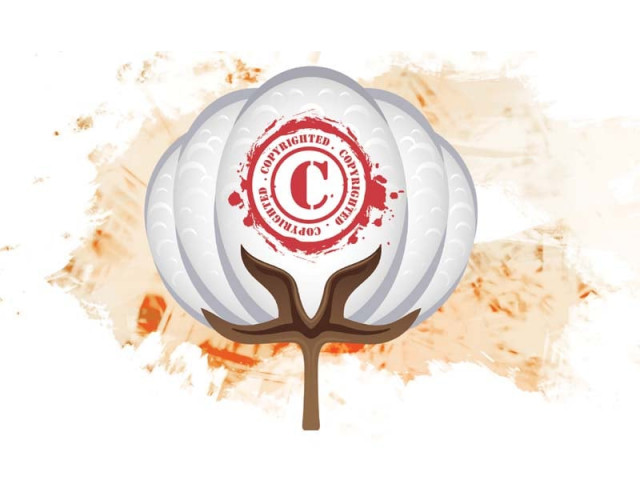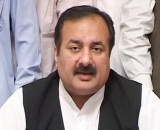Branded seeds: Free market, copyrights and farmers’ welfare
Monsanto’s demand for protection of its intellectual copyright could be the best thing for Pakistani agriculture.

Branded seeds: Free market, copyrights and farmers’ welfare
Pakistan is the largest exporter of cotton yarn in the world and the third largest exporter of raw cotton. About 1.3 million farmers (out of a total of 5 million) cultivate cotton over three million hectares, covering 15% of the cultivable area in the country. Cotton and cotton products contribute about 10% to GDP and 55% to the foreign exchange earnings of the country.
Thus any policy affecting the yield of this silver crop would have serious implications for national economy. It is in this perspective that Punjab government opposition to US agrichemical giant Monsanto’s demands for intellectual property rights protection for its BT cotton seeds need careful evaluation.
According to a recent news item, the Punjab government has refused to agree to Monsanto’s demands for intellectual property rights (IPR) protection for its BT cotton seeds and has accused the company of a “monopolistic” plan to take over agriculture in Punjab. This is a serious allegation and will have consequences for foreign companies working in Pakistan, which are always keen to assert protection of their intellectual property on account of their huge R&D investment as well as international regulations such as TRIPS. Monsanto has maintained that it is not against the use of other seeds, just against the illegal transfers of its own seeds.
Pakistan uses about 40,000 tons of cotton seeds every year, about 25% of which comes from the 770 seed companies operating in Pakistan. The bulk of the seeds are those that farmers share with each other. It is this practice of free-riding that Monsanto would like to be checked.
It is clear that Monsanto’s seeds do need to pass through a trial and error stage before being fully adapted to local soil needs. Moreover, it is not just seed alone but entire field management of planting of seeds which contribute to the ultimate outcome. Of course, this can only be done with the back-up of rigorous research apparatus and cannot be left to traders and smugglers of BT cotton seeds. Therefore Monsanto’s position that farmers should not be allowed to exchange seeds has some logic from crop management perspective.
Monsanto’s position is challenged not only by the provincial government but also by farmers’ lobbies. Ibrahim Mughal, the chairman of Agriforum Pakistan has said that “Monsanto would destroy Pakistan. If we want a free economy in Pakistan, then Monsanto must not be allowed to market its seeds in Pakistan.”
Call for a free economy and opposition to the entry of a firm in a single breath is not only paradoxical but also ironic. Free market economy is featured with easy entry and exit and strong checks on anti-competitive practices such as monopolistic tendencies and cartelisation.
Monsanto is not the sole provider of BT cotton seeds in the world and thus there is no threat of a monopolistic conduct from this giant rendering fears of Punjab government and farmers baseless. Seed Association of Pakistan has earlier pointed out that the German multinational Bayer is providing the same technology like BT Cotton (Bollgard-II) without seeking any royalty and compensatory amount. So is the case with Biocentury Transgene, China’s leading biotechnology provider. Therefore, if for any reason, we do not wish to buy from Monsanto, we can explore other options. But if we end up buying from Monsanto, we need to ensure respect of contractual obligations and intellectual property.
The debate over intellectual property rights even within free marketeers is not settled with views ranging from stringent application of TRIPS like measures to open software, free for all, mindset. It is clear that without an incentive and legal protection of patents, no private sector firm is willing to invest billions of dollars in research.
IPR is beneficial for all. Several Pakistani research institutes, such as Punjab University’s National Center of Excellence for Molecular Biology (CEMB) and Nuclear Institute for Agriculture and Biology (NIAB), Faisalabad have dedicated substantial resources over research and pilot production of BT cotton seeds. CEMB has successfully demonstrated efficacy of its seeds at a pilot farm near Multan.
The decision of buying a specific seed should best be left as a contractual exchange between the farmer and seed manufacturer and distributor. Enforcement of intellectual property, standardisations and maintaining fair competition are the most important obligations of the government. It risks loss of credibility by stepping out of this boundary.
The writer is a principal consultant at Development Pool and a founding member of Economic Freedom Network Pakistan.
Published in The Express Tribune, March 12th, 2012.



















COMMENTS
Comments are moderated and generally will be posted if they are on-topic and not abusive.
For more information, please see our Comments FAQ